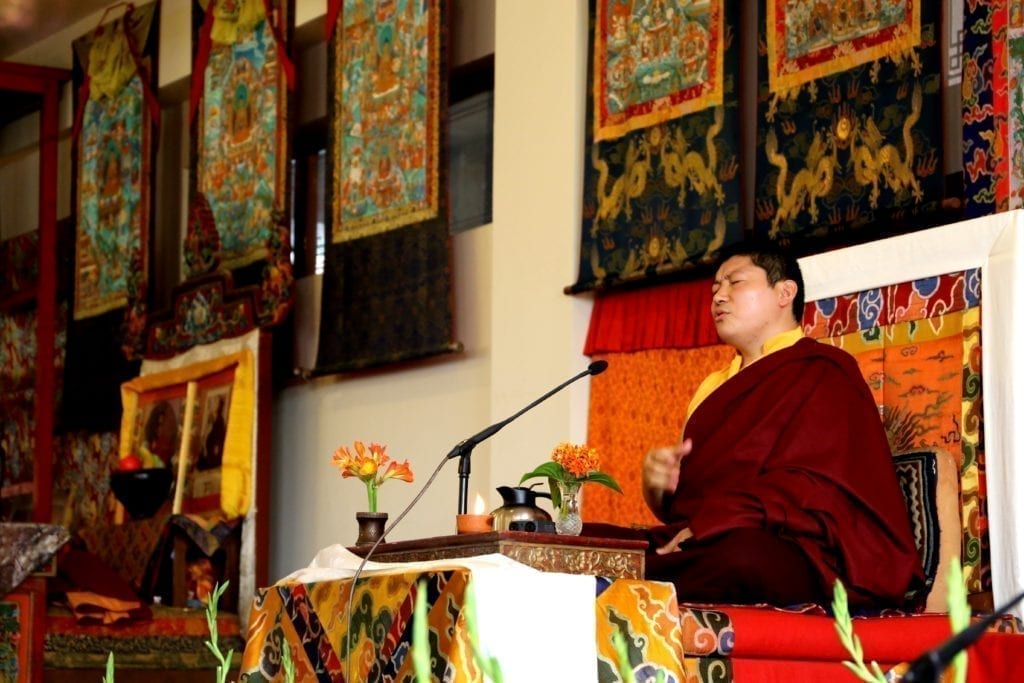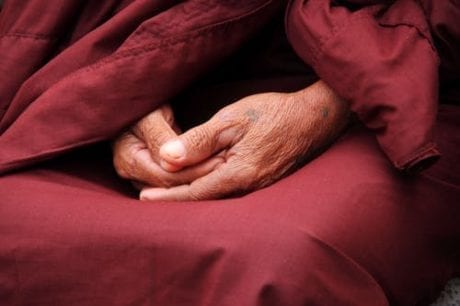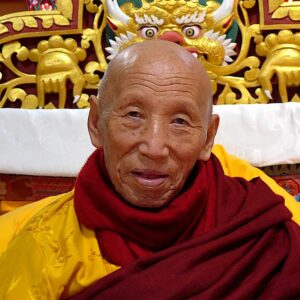Supplication: The Real Meaning
Supplication is a key element of Tibetan Buddhist Vajrayana practice. We’ve heard this over and over again, but what does it really mean?
Phakchok Rinpoche frequently explains that supplication means to think of the qualities of the master. Moreover, think of his or her practice, and of their kindness. Be thankful for that kindness. Then, think that the master is truly present and remember to request the master to bless you. Next, think of the nature of your mind. All these steps, Rinpoche reminds us, are part of supplication.
Supplication: The Practice Level
When we devotedly say, “Oh, my Guru!” we should stop and think about the guru’s qualities. Similarly, when we think of the Buddha, we take some time to recall the kindness and to ask for blessings. “Praising enlightened beings by saying, “Oh, Buddha” is not just saying words. These words contain so many elements, such as the Dharma. A short homage, or praise includes a lot of meaning, but we don’t often explain it extensively. We chant homages, but sometimes we don’t take the time to think about why we’re doing this.
This simple phrase, “Oh Buddha”, helps to remind us of unlimited compassion. The Buddha doesn’t have anger, but instead is devoted to serve all sentient beings. Buddhas have no judgment, and no ego. That’s truly amazing if we take the time to reflect. Then, we also need to feel the presence of the Buddha or master. If we don’t feel the presence, then we have no “grease” in our practice. And what is the result of dry practice? We’ll lack motivation and inspiration.
Feeling Presence
When we feel the presence of awakened beings, then we see the Buddha or master as role models–and we want to become like them. And we understand that in order to become like them, we need to practice the Dharma. By reflecting on the qualities of the teacher, we will want to follow their example. The teacher is the embodiment of the qualities we respect. Doesn’t it make sense to learn how to practice from someone who embodies those qualities? A Buddha is without agenda, and without ego and dualistic fixation. Those are the qualities of a Buddha.
Supplication Prevents Loneliness and Reduces Pride
When we have some experience with practice, we start to see some small changes in ourselves. And our ability to practice comes from the kindness of past practitioners. If we remember those who came before us and preserved the teachings, we won’t feel lonely. That’s the main reason we regulary recite prayers to the lineage masters. Instead, we’ll feel warm and cared for–very greasy! Remembering qualities and kindness makes us feel blessed and spiritual. Memory can be a very powerful thing. When we remember all the past masters, and request their blessings and empowerment, we feel very inspired. We believe that we can practice correctly–and that we will see results.
And finally, when we supplicate, we reduce our pride and ego–we think more of others. We remember the debt we owe those who came before us, so we don’t get puffed up about our own experiences. And then, compassion will develop.
Supplication Practice
We can all practice supplication by joining in the sangha-wide practice of supplicating Guru Rinpoche, Padmasambhava. We can find many different prayers, but if we are unsure where to start, we might wish to join in calling on Guru Rinpoche with The Six Vajra Line Supplication.











Responses